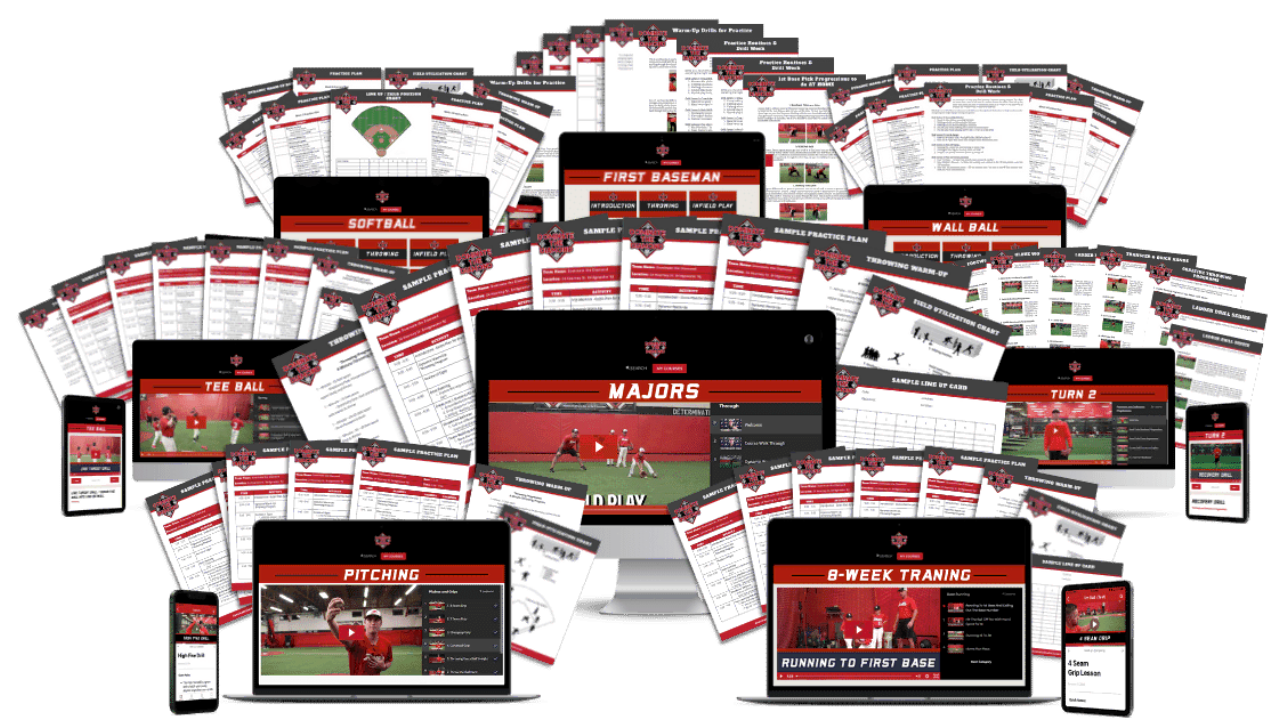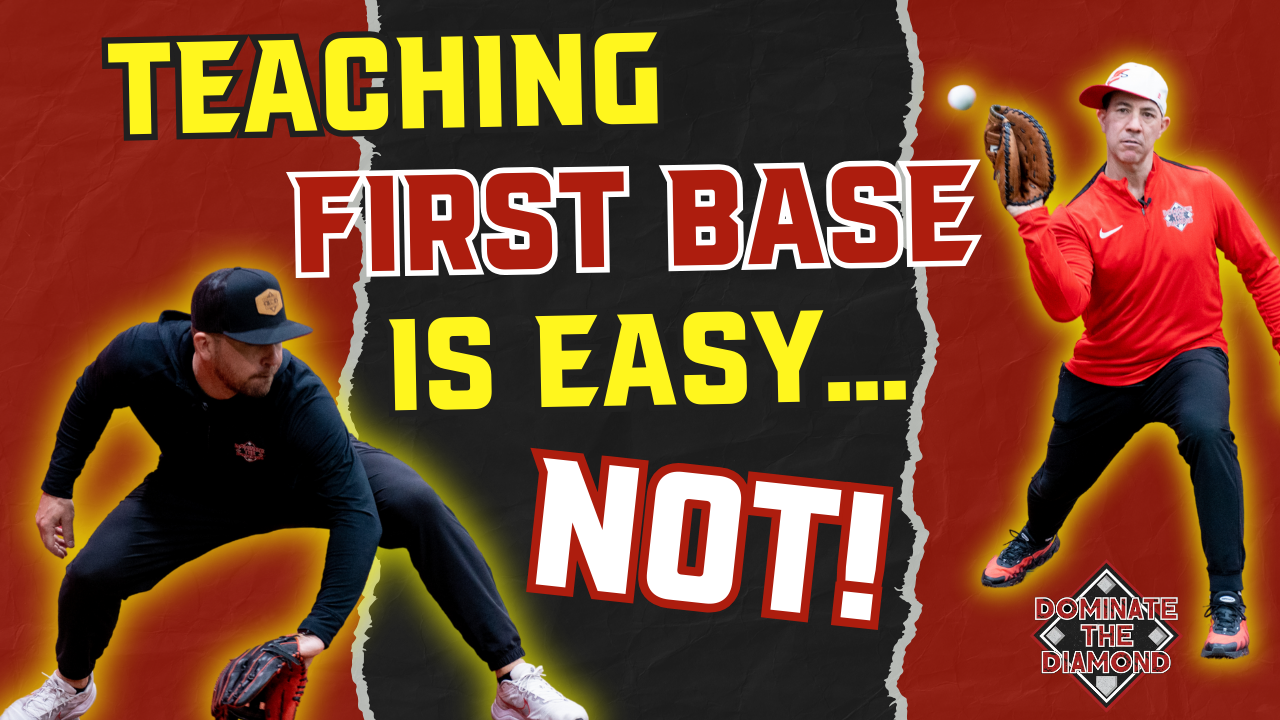Why Player Skill Evaluation Is The Key To Creating Effective Practices

As a coach it’s natural to focus your attention on those players who are athletically gifted, take instructions well and understand the game. It definitely makes your job easier. But to build a strong, cohesive and happy team you need to develop ALL players regardless of their current skill level.
Every kid has something special to bring to the table, whether it's hitting home runs or cheering on their teammates. Understanding these differences is important because it will help you plan practices that everyone enjoys and grows from. When you take the time to learn what each player is good at, you create a fun and growth-based experience tailored to meet them at their individual level and lead them towards success.
Evaluating The Skill Level Of Your Players
Understanding where your players are at is crucial for successful coaching. It's like putting together a puzzle where each piece needs to fit just right. If you know the areas each player excels in you can make sure everyone gets their chance to shine.
Take Jamie, for example. He's new to baseball, so he's still learning the ropes. By planning practices that match Jamie's skills, you can help him learn and improve faster. Maybe Jamie needs extra help with catching or throwing. You can work on those skills together during practice. And when Jamie sees himself getting better, his confidence will grow because he not only believes in himself but starts to understand that he is a valuable part of the team.
This kind of inclusive coaching doesn't just help Jamie—it helps all your players. When everyone feels supported and included, practices become more exciting and rewarding for everyone.
Quick Ways To Check Player Skills
Assessing player skills through observation, challenges and conversations is key in adapting your coaching approach and maximizing each player’s potential. It’s important to use your evaluations solely for the purpose of improving individual skills and for your own knowledge when planning future practices. We don’t recommend comparing players to each other or to statistics as this can actually cause more challenges.
Discovering Hidden Talents
When leading your team through drills, pay close attention to each player. Notice who finds the exercises easy and who might need extra help. These observations give you important insights into each player's skills. By knowing where adjustments are needed, either heightening the level of difficulty for some, or showing assistance to those that need the support. This allows you to support kids in getting stronger.
Fun Skill Challenge
Make practices fun by adding quick and enjoyable skill tests. Test throwing, catching, and batting. These activities show each player's strengths and areas to work on. They also keep the energy high and the team excited.
Making Practices Fit For Everyone
After carefully evaluating your players, you have the opportunity to modify your sessions to address their unique needs.
Here’s some ways to achieve this:
Group By Skills
Split players into groups based on their skill level. This means each group gets lessons that promote growth and improvement at their specific level. For example, beginners can work on basic skills, while better players can work on more intermediate skills.
Some drills for this include:
Skill Stations: set up different stations around the field, each focusing on a specific skill level
Progressive Drills: start with simple drills that everyone can do, then gradually increase the difficulty level as players move through the stations
Personalize Challenges
Create special tasks for each group to help them grasp the fundamentals. For beginners learning to catch, try fun games with softer balls or shorter throws. These challenges make learning fun for everyone.
You could try:
Catch Relay: Divide players into skill-based groups, using softer balls and shorter distances at first and then progressing to regular baseballs and longer throws. Then have the kids participate in a relay race where they catch and throw the ball to their teammates.
Skills Rotation: Rotate players through various positions during practice, allowing everyone, regardless of skill level, to experience different roles and learn from each other, thereby enhancing the team's overall dynamic.
Blend Skill Levels
It’s important to mix all players together for team activities for a portion of your practices. This brings them closer together and lets less skilled players learn from the stronger ones. Blending beginner and advanced players makes practicing more fun, encourages friendly competition and bonds the team.
Here’s some fun things to do:
Scrimmage Games: Split players into mixed-skill teams for scrimmage games, letting less skilled players learn from the more advanced ones while also working together as a team.
Skills Rotation: During practice, rotate players through various positions regardless of their skill level, offering everyone the opportunity to explore different roles and bolster the team's cohesion.

Plan Lessons That Build On Each Other
Map out your season with a plan to improve step by step. Begin by focusing on the basics and gradually introduce more challenging skills as you go along. Make sure each practice builds on what has already been learned, so players feel more and more confident as they tackle new challenges.
Here are some progressive drills you can use with players age 10 and under: You can spend roughly 2-3 minutes doing each progression and these can be done by the players only with a partner - or a coach doing them with small groups of 3-4 players.
- Infield - Barehanded Rollouts - Kneeling Rollouts - Stationary Pick Work - Left Foot timing - 3 Cone Drill
- Outfield - Barehand Drop Steps - Glove Drop Steps - Quarterback Drill
- Catching - Barehand Receiving - Mini Ball Receiving - Frisbee Receiving
- Pitching - Balance Drills - Towel Drills - Flat Ground Bullpens - Bullpen Work
The Benefit Of Player Feedback
Make it a point to ask your players for their thoughts on what they like and what could be better. You can do this by having a quick chat after practice or by setting up a more formal feedback session halfway through the season.
Eric, a coach we recently worked with, learned that his players really loved a specific batting drill. So, he decided to use a similar setup for other skills, and guess what? It made a big difference! More players got involved and were excited to participate, making the whole team more engaged in practices. John deemed this change to be the key to the team's future success on the field.

Adjust Your Practices To Help Improve All Players
Effective coaching involves understanding the needs and abilities of all your players and crafting practices that help each of them grow at their own pace. By carefully evaluating skills and planning accordingly, you ensure that practices are not only productive but also enjoyable. When all players are engaged, improving, and having fun individually or as a group, the entire team wins!
Looking for some pre-made practice plans with stations already planned for you? Check out our Pre-Made Practice Plans here.









